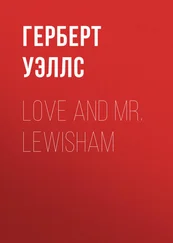Герберт Уэллс - First and Last Things - A Confession of Faith and Rule of Life
Здесь есть возможность читать онлайн «Герберт Уэллс - First and Last Things - A Confession of Faith and Rule of Life» — ознакомительный отрывок электронной книги совершенно бесплатно, а после прочтения отрывка купить полную версию. В некоторых случаях можно слушать аудио, скачать через торрент в формате fb2 и присутствует краткое содержание. Жанр: foreign_antique, foreign_prose, на английском языке. Описание произведения, (предисловие) а так же отзывы посетителей доступны на портале библиотеки ЛибКат.
- Название:First and Last Things: A Confession of Faith and Rule of Life
- Автор:
- Жанр:
- Год:неизвестен
- ISBN:нет данных
- Рейтинг книги:3 / 5. Голосов: 1
-
Избранное:Добавить в избранное
- Отзывы:
-
Ваша оценка:
- 60
- 1
- 2
- 3
- 4
- 5
First and Last Things: A Confession of Faith and Rule of Life: краткое содержание, описание и аннотация
Предлагаем к чтению аннотацию, описание, краткое содержание или предисловие (зависит от того, что написал сам автор книги «First and Last Things: A Confession of Faith and Rule of Life»). Если вы не нашли необходимую информацию о книге — напишите в комментариях, мы постараемся отыскать её.
First and Last Things: A Confession of Faith and Rule of Life — читать онлайн ознакомительный отрывок
Ниже представлен текст книги, разбитый по страницам. Система сохранения места последней прочитанной страницы, позволяет с удобством читать онлайн бесплатно книгу «First and Last Things: A Confession of Faith and Rule of Life», без необходимости каждый раз заново искать на чём Вы остановились. Поставьте закладку, и сможете в любой момент перейти на страницу, на которой закончили чтение.
Интервал:
Закладка:
The old theological deadlock between predestination and free will serves admirably as an example of the sort of deadlock I mean. Take life at the level of common sensation and common experience and there is no more indisputable fact than man’s freedom of will, unless it is his complete moral responsibility. But make only the least penetrating of scientific analyses and you perceive a world of inevitable consequences, a rigid succession of cause and effect. Insist upon a flat agreement between the two, and there you are! The instrument fails.
So far as this particular opposition is concerned, I shall point out later the reasonableness and convenience of regarding the common-sense belief in free will as truer for one’s personal life than determinism.
1.10. PRACTICAL CONCLUSIONS FROM THESE CONSIDERATIONS
Now what is the practical outcome of all these criticisms of the human mind? Does it follow that thought is futile and discussion vain? By no means. Rather these considerations lead us toward mutual understanding. They clear up the deadlocks that come from the hard and fast use of terms, they establish mutual charity as an intellectual necessity. The common way of speech and thought which the old system of logic has simply systematized, is too glib and too presumptuous of certainty. We must needs use language, but we must use it always with the thought in our minds of its unreal exactness, its actual habitual deflection from fact. All propositions are approximations to an elusive truth, and we employ them as the mathematician studies the circle by supposing it to be a polygon of a very great number of sides.
We must make use of terms and sometimes of provisional terms. But we must guard against such terms and the mental danger of excessive intension they carry with them. The child takes a stick and says it is a sword and does not forget, he takes a shadow under the bed and says it is a bear and he half forgets. The man takes a set of emotions and says it is a God, and he gets excited and propagandist and does forget; he is involved in disputes and confusions with the old gods of wood and stone, and presently he is making his God a Great White Throne and fitting him up with a mystical family.
Essentially we have to train our minds to think anew, if we are to think beyond the purposes for which the mind seems to have been evolved. We have to disabuse ourselves from the superstition of the binding nature of definitions and the exactness of logic. We have to cure ourselves of the natural tricks of common thought and argument. You know the way of it, how effective and foolish it is; the quotation of the exact statement of which every jot and tittle must be maintained, the challenge to be consistent, the deadlock between your terms and mine.
More and more as I grow older and more settled in my views am I bored by common argument, bored not because I am ceasing to be interested in the things argued about, but because I see more and more clearly the futility of the methods pursued.
How then are we to think and argue and what truth may we attain? Is not the method of the scientific investigator a valid one, and is there not truth to the world of fact in scientific laws? Decidedly there is. And the continual revision and testing against fact that these laws get is constantly approximating them more and more nearly to a trustworthy statement of fact. Nevertheless they are never true in that dogmatic degree in which they seem true to the unphilosophical student of science. Accepting as I do the validity of nearly all the general propositions of modern science, I have constantly to bear in mind that about them too clings the error of excessive claims to precision.
The man trained solely in science falls easily into a superstitious attitude; he is overdone with classification. He believes in the possibility of exact knowledge everywhere. What is not exact he declares is not knowledge. He believes in specialists and experts in all fields.
I dispute this universal range of possible scientific precision. There is, I allege, a not too clearly recognised order in the sciences which forms the gist of my case against this scientific pretension. There is a gradation in the importance of the individual instance as one passes from mechanics and physics and chemistry through the biological sciences to economics and sociology, a gradation whose correlations and implications have not yet received adequate recognition, and which does profoundly affect the method of study and research in each science.
Let me repeat in slightly altered terms some of the points raised in the preceding sections. I have doubted and denied that there are identically similar objective experiences; I consider all objective beings as individual and unique. It is now understood that conceivably only in the subjective world, and in theory and the imagination, do we deal with identically similar units, and with absolutely commensurable quantities. In the real world it is reasonable to suppose we deal at most with PRACTICALLY similar units and PRACTICALLY commensurable quantities. But there is a strong bias, a sort of labour-saving bias, in the normal human mind, to ignore this, and not only to speak but to think of a thousand bricks or a thousand sheep or a thousand Chinamen as though they were all absolutely true to sample. If it is brought before a thinker for a moment that in any special case this is not so, he slips back to the old attitude as soon as his attention is withdrawn. This type of error has, for instance, caught many of the race of chemists, and ATOMS and IONS and so forth of the same species are tacitly assumed to be similar to one another.
Be it noted that, so far as the practical results of chemistry and physics go, it scarcely matters which assumption we adopt, the number of units is so great, the individual difference so drowned and lost. For purposes of enquiry and discussion the incorrect one is infinitely more convenient.
But this ceases to be true directly we emerge from the region of chemistry and physics. In the biological sciences of the eighteenth century, common-sense struggled hard to ignore individuality in shells and plants and animals. There was an attempt to eliminate the more conspicuous departures as abnormalities, as sports, nature’s weak moments; and it was only with the establishment of Darwin’s great generalizations that the hard and fast classificatory system broke down and individuality came to its own. Yet there had always been a clearly felt difference between the conclusions of the biological sciences and those dealing with lifeless substance, in the relative vagueness, the insubordinate looseness and inaccuracy of the former. The naturalist accumulated facts and multiplied names, but he did not go triumphantly from generalization to generalization after the fashion of the chemist or physicist. It is easy to see, therefore, how it came about that the inorganic sciences were regarded as the true scientific bed-rock. It was scarcely suspected that the biological sciences might perhaps after all be TRUER than the experimental, in spite of the difference in practical value in favour of the latter. It was, and is by the great majority of people to this day, supposed to be the latter that are invincibly true; and the former are regarded as a more complex set of problems merely, with obliquities and refractions that presently will be explained away. Comte and Herbert Spencer certainly seem to me to have taken that much for granted. Herbert Spencer no doubt talked of the unknown and unknowable, but not in this sense as an element of inexactness running through all things. He thought, it seems to me, of the unknown as the indefinable Beyond of an immediate world that might be quite clearly and definitely known.
There is a growing body of people which is beginning to hold the converse view – that counting, classification, measurement, the whole fabric of mathematics, is subjective and untrue to the world of fact, and that the uniqueness of individuals is the objective truth. As the number of units taken diminishes, the amount of variety and inexactness of generalization increases, because individuality tells for more and more. Could you take men by the thousand billion, you could generalize about them as you do about atoms; could you take atoms singly, it may be that you would find them as individual as your aunts and cousins. That concisely is the minority belief, and my belief.
Читать дальшеИнтервал:
Закладка:
Похожие книги на «First and Last Things: A Confession of Faith and Rule of Life»
Представляем Вашему вниманию похожие книги на «First and Last Things: A Confession of Faith and Rule of Life» списком для выбора. Мы отобрали схожую по названию и смыслу литературу в надежде предоставить читателям больше вариантов отыскать новые, интересные, ещё непрочитанные произведения.
Обсуждение, отзывы о книге «First and Last Things: A Confession of Faith and Rule of Life» и просто собственные мнения читателей. Оставьте ваши комментарии, напишите, что Вы думаете о произведении, его смысле или главных героях. Укажите что конкретно понравилось, а что нет, и почему Вы так считаете.












